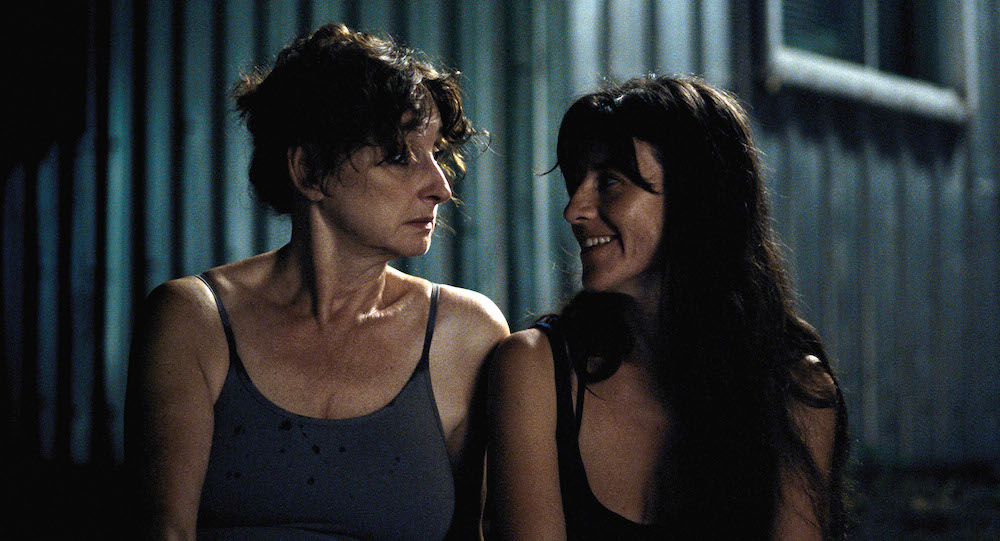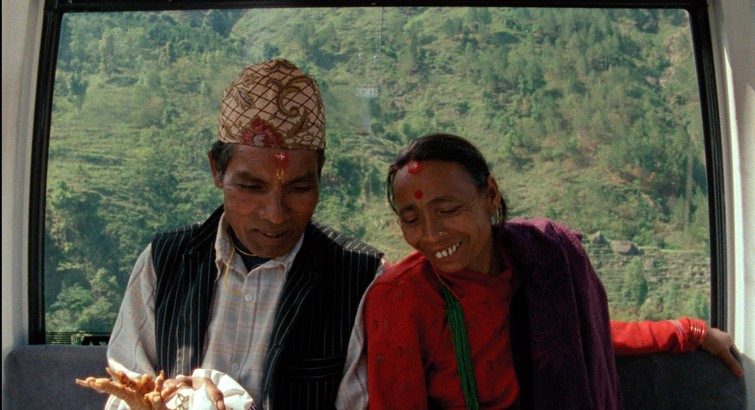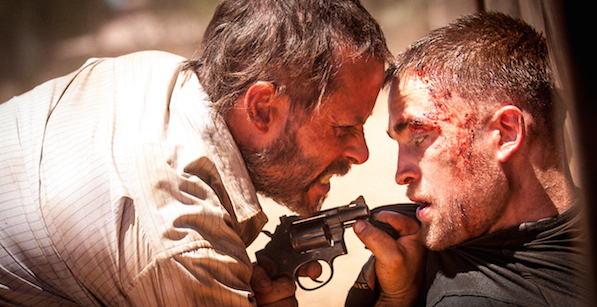
Between Gravity and All is Lost last year, and Life of Pi the year before, the solitary figure has been a dominant presence in movies of late. Lonely protagonists can be found in some of this year’s best films as well—in Under the Skin and Locke, for example. So what of the couple, the duo, the tag teams? Have they gone the way of the romantic comedy, the demise of which was also lamented this year? Not quite, of course, even if the best examples from the past year rarely fit into a traditional Harry-and-Sally or Riggs-and-Murtaugh mold.
Land Ho!
Coming off his great performance last year in This is Martin Bonner, Paul Eenhoorn shines again in Aaron Katz and Martha Stephens’s comedy about an odd couple of seniors on a trip to Iceland. Eenhoorn plays the reserved, polite Colin, who recently split up with his partner, not long after having lost his first wife to cancer. His traveling buddy is the crude and childish Mitch (Earl Lynn Nelson), Colin’s brother-in-law from that first marriage. Mitch’s demeanor helps him dominate most of his scenes, but it’s the way Colin lets him have his moments before occasionally cutting him down that ultimately reveals a deeper truth of their relationship: These are both hurt souls that, for their owns reasons, refuse to show their sorrow, either by staying silent about it or drowning it out with a big personality. Until, of course, you put them together for a weeklong Scandinavian vacation.
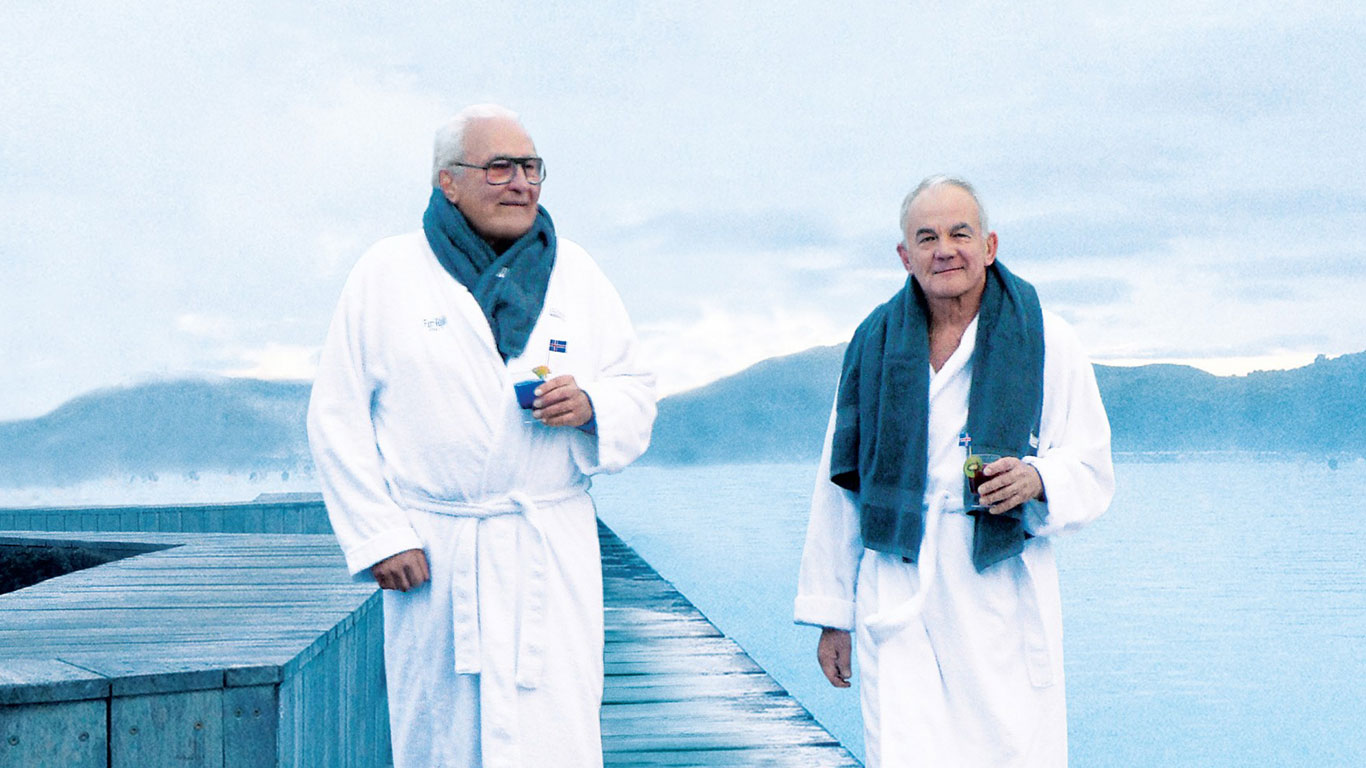
The Rover
In The Rover, David Michôd’s film set after the collapse of human civilization, we first hear of Rey (Robert Pattinson) from his brother Henry (Scoot McNairy) as he’s leaving Rey for dead after an unseen shootout. The implied notion that Rey is helpless on his own gets corroborated when he joins up with Eric (Guy Pearce) to track down Henry. In a world now populated only by those who can best fend for themselves, Rey shows an almost complete lack of self-reliance. And that need for companionship, born in part from his mental illness and lack of self-confidence, is what makes the blossoming relationship between him and Eric—ultimately the heart of The Rover—both so moving and painful to watch.
Whiplash
Maybe most people wouldn’t call what Andrew (Miles Teller) and Fletcher (J.K. Simmons) share in Whiplash love. Because, well, lovers don’t throw drum sets at each other or go to absurd lengths to humiliate one another. But in the rousing final shots of Damien Chazelle’s film, after they’ve carried the movie with their quick-paced dialogue, the two share a moment that conveys undeniable affection, albeit a kind of affection that comes with Gone Girl levels of sadomasochism.
Vic + Flo Saw a Bear
Before the brutal core of Denis Côté’s becomes horrifyingly evident in the film’s final twenty minutes, a more psychological cruelty prevails. Watching the eponymous couple, both ex-convicts, hide out in the Quebec woods for unspoken reasons, what stands out are the consequences isolation breeds: jealousy, anger and repeated reproaches. Ironically enough, it’s only when the film unequivocally descends into the cruelty implied by its initial disquieting mood that Côté also makes most explicit a tenderness at the heart of Vic and Flo’s relationship, one that, in Côté’s world at least, counts as a heartwarming silver lining.
Manakamana
Narayan Gayek and Gopika Gayek, a middle-aged couple, get the first and last words in Manakamana, Stephanie Spray and Pacho Velez’s documentary made up entirely of still shots of people as they take a cable car to and from a mountaintop Nepalese temple dedicated to the goddess Manakamana. Naraya and Gopika are the only people that we see on their way to and from the temple. On the first trip, carrying a chicken to sacrifice, Narayan is tense, Gopika nervous. On the way back, a connection—subdued admittedly, like everything in this softly moving film—emerges. This was Gopika’s first visit to the temple. “I’ve been wanting to come here for a long time,” she says, “Now that wish has been fulfilled. Now I have to see other places that I have always desired to visit.” You know nothing of this couple’s past, of their relationship, but seeing them together on this simple portion of a momentous journey, it’s hard not to give in to romanticization.
The Trip to Italy
Michael Winterbottom’s sequel to The Trip offers more of the same, but watching Rob Brydon and Steve Coogan is no less compelling the second time around. The pleasure, first and foremost, comes from their humor, charisma and chemistry. The two bring out an infectious joy in each other. But there are also melancholic undertones. Brydon and Coogan’s incessant joking is, in Trip to Italy as much as in The Trip, a useful mask. And the more that this aspect of their relationship comes to the fore, the more the movie becomes a film about a friendship that is as much as a crutch as it is an honest bromance.
What If
The “romantic comedies are dead” argument is mostly one based on box-office stats. It’s evident that the genre no longer reaps millions of dollars from audiences but, as Vulture has usefully pointed out, it’s equally obvious that rom-coms are alive and well in independent film. What if tells you all you need to know about how to keep an old tale fresh: mostly make sure that your script is as witty as Elan Mastai’s and that your leads are as charming and charismatic as Daniel Radcliffe and Zoe Kazan. The two play Wallace and Chantry, close friends who slowly but (spoiler alert) surely realize they’re meant for each other. Ultimately the film teaches us about good movies the same thing it teaches us about love: sometimes you find it in the most expected of places.
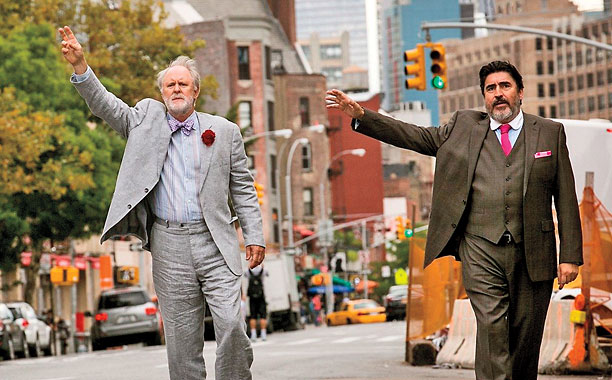
Love is Strange
Ira Sach’s dramedy begins when George (Alfred Molina) is fired from his job as a Catholic School music teacher for getting married to his long time partner, Ben (John Lithgow). In the aftermath, the two are forced to leave their apartment. George moves in with a younger couple and Ben with his nephew and his family. Molina and Lithgow are charming and funny in equal measure, but it’s a hug they share in one pivotal scene that really gets to the heartfelt core of their performances and this movie. The title of Love is Strange ostensibly refers to the twists and challenges of romantic relationships, but it masks the fact that the film is ultimately an old-fashioned story of commitment and devotion.
What Now? Remind Me
Joaquim Pinto’s documentary about the brutal and debilitating experimental HIV treatments he undergoes for a year is driven in many ways by his relationship with his largely unseen partner, Nuno. In fact, Pinto begins the film by stating that Nuno was not comfortable participating in the documentary, which honestly reflects on and portrays the often painful realties of his illness. Over time, though, Nuno starts making brief appearances, sometimes working in the fields of his and Pinto’s farm, at other times driving with him to some of Pinto’s countless doctor’s appointment. By the end of the documentary, Nuno’s presence in the doc may still be fleeting, but the strength and resonance of his relationship with Pinto is certainly felt.
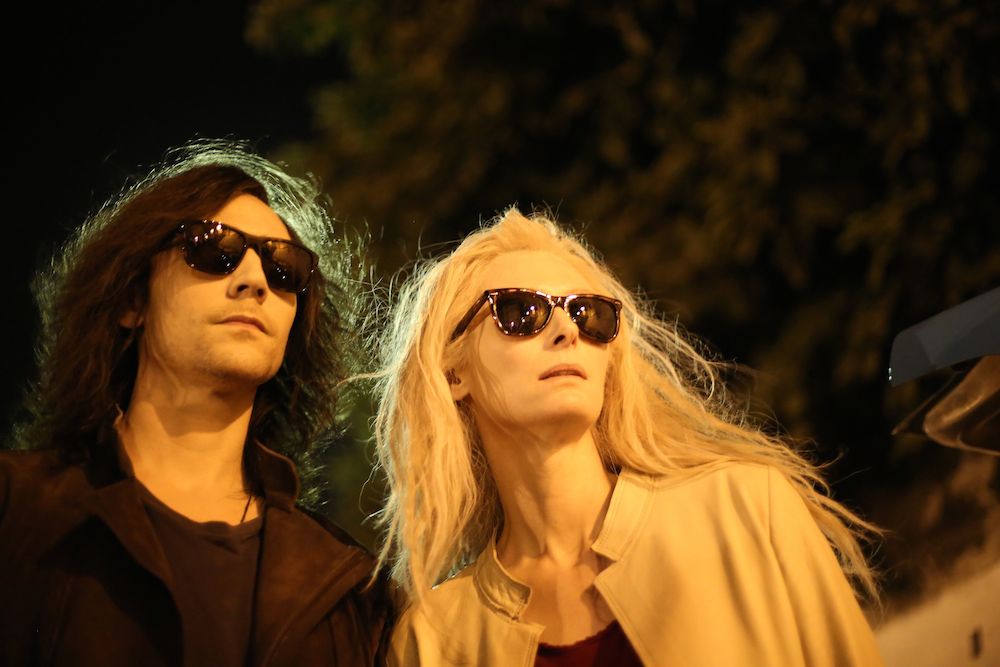
Only Lovers Left Alive
There’s a clear line connecting the disaffected hipsters of Jim Jarmusch’s Stranger Than Paradise and the central vampire couple in his most recent film, Only Lovers Left Alive, even if the sumptuous visuals of the latter are miles removed from the style of Jarmusch’s 1984 sophomore film. Only Lovers, like Strangers, also contains a substantial amount of ennui, but it sits comfortably, if unexpectedly, with the irresistible, sentimental romance of its two main vampires, eternal soul mates named after the original lovers, Adam and Eve. The two have been together for many centuries and when we meet them Adam (Tom Hiddleston) is frail, depressed and suicidal living in Detroit, causing Eve (Tilda Swinton) to travel from Tangiers to accompany him and lift his spirits. There’s a lot of lament in the film about the future of mankind and the disasters that humans have wrought on this planet. But the movie also contains a celebration, if a mournful one, of humanity’s fading glorious past. Most of all, there’s pleasure to be taken—and maybe hope, if you believe that humans can learn a little something from immortal vampires—in watching Adam and Eve tour the accumulating rubble of human civilization in such glorious union.

